Dr. Abdul Qadeer Khan was hailed as a national hero for transforming his country (Pakistan) into the world’s first Islamic nuclear power. He is also known as AQ Khan. The scientist helped to set up Pakistan’s first nuclear enrichment plant at Kahuta, near Islamabad. By 1998, the country had conducted its first nuclear test. But he was also notorious for smuggling nuclear secrets to states, including North Korea and Iran.

Early Life
Abdul Qadeer Khan was born on April 1, 1936, in Bhopal, the former British India state of Bhopal. And it is now the capital of Madhya Pradesh. His family is Orakzai (Pashtun tribe). His father, Abdul Ghafoor, was a schoolteacher who once worked for the Ministry of Education. His mother, Zulaikha, was a very religious housewife. His siblings, along with other family members, emigrated to Pakistan. During the bloody partition of India in 1947 (the partition of the independent state of Pakistan), which often led to Khan’s parents learning about the new life in Pakistan.
After matriculating from a local school in Bhopal in 1952. Khan emigrated from India to Pakistan on the Sindh Mail train, partly because of reservation politics, leaving religious imprints in India 254 and the youth in India. After settling in Karachi with his family, Khan briefly studied at the DJ Science College before moving to Karachi University, where he earned a Bachelor of Science (B.Sc.) In physics, with a focus on solid-state physics.
Scientific Career
From 1956 to 1959, Khan was employed by the Karachi Metropolitan Corporation (City Government) as an inspector of weights and measures and applied for a scholarship that allowed him to study in West Germany. In 1961, Khan left for West Germany to study material sciences at the Technical University of West Berlin, where he specialized in metallurgy courses, but in 1965 at the Delft University of Technology in the Netherlands.
He left West Berlin after the change. In 1967, Khan earned an engineering degree in materials technology equivalent to a Master of Science (MS) offered in English-speaking nations such as Pakistan and joined a doctoral program in metallurgical engineering at the Catholic University of Leuven in Belgium.

He worked at the University of Leuven under Martin J. Bieberger, a Belgian professor, who oversaw his doctoral dissertation, which Khan successfully defended, and graduated in 1972 with a degree in metallurgical engineering. Graphene Morphology That same year, Khan joined the Amsterdam-based engineering firm, Physics Dynamics Research Laboratory (or in Dutch: FDO), on the recommendation of Barbers.
The FDO was a subcontractor for the Urenco Group, operating a uranium enrichment plant at Almelo and using a gas centrifuge method to ensure the supply of nuclear fuel to nuclear power plants in the Netherlands. Shortly afterward, Khan left the FDO when Urenco offered him a senior technical position, initially studying uranium metallurgy.
A key contributor to Pakistan’s nuclear program was the purchase of a blueprint for uranium centrifuges, which converts uranium into weapons-grade fuel for nuclear material.
He was accused of stealing it from the Netherlands and bringing it back to Pakistan in 1976 while working for the Anglo-Dutch, German nuclear engineering consortium Urenco.

On his return to Pakistan, then-Prime Minister Zulfiqar Ali Bhutto put Khan in charge of the government’s new uranium enrichment project. Khan later said in a press interview that by 1978, his team had enriched uranium and by 1984 he was ready to detonate a nuclear device. The 1998 nuclear test saw Pakistan face international sanctions and its economy plunged into freefall.
Khan’s heyday came in March 2001 when then-President Pervez Musharraf, under pressure from the United States, removed him from the chairmanship of Kahuta Research Laboratories and made him a special adviser. But Pakistan’s nuclear establishment never expected its most respected hero to be questioned.
The move comes after Islamabad received a letter from the UN’s watchdog International Atomic Energy Agency, alleging that Pakistani scientists were a source of sold nuclear knowledge.
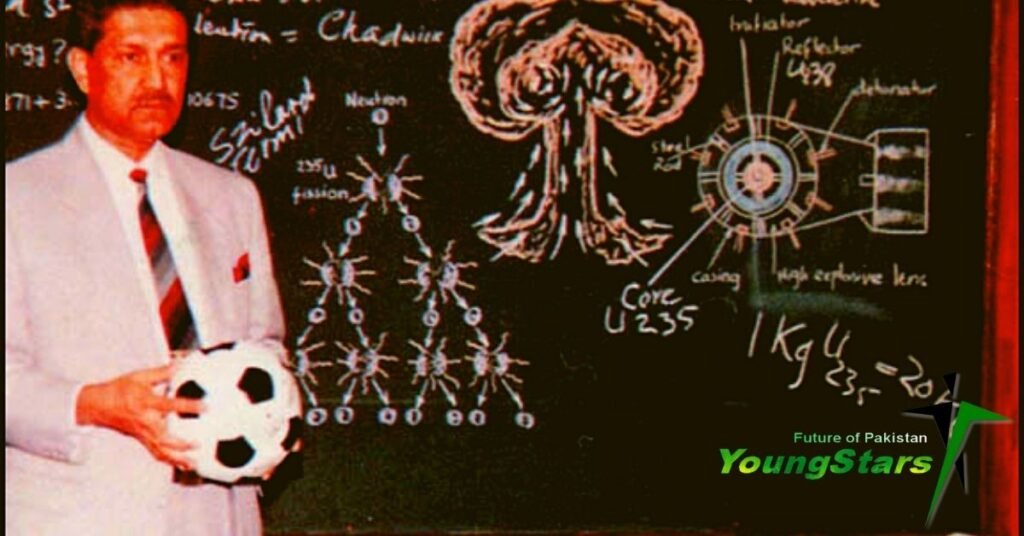
Khan had said in a speech to the Pakistan Institute of National Affairs in 1990 that he had a deal on world markets during the development of Pakistan’s nuclear program.
“We couldn’t make every single piece of equipment in the country,” he said. Khan had pardoned Musharraf after his confession, but later withdrew his remarks. “The first time I saved the country was when I made Pakistan a nuclear country and I saved it again when I blamed myself,” Khan told AFP in an interview in 2008.
In 2004, Dr. Khan was at the center of a large-scale global nuclear proliferation scandal. In a series of dramatic developments, he was accused by the then-Army chief and President Pervez Musharraf of running a rogue proliferation network for nuclear material.
Shortly after Musharraf’s announcement, a recorded confession was broadcast by Khan in which he claimed responsibility for all the nuclear proliferation that was revealed. He was later placed under house arrest. A court lifted his detention in February 2009, but his movements were closely monitored, and authorities accompanied him whenever he left his home in Islamabad.
Later, he filed a petition in the Lahore High Court seeking enforcement of his fundamental rights, including free movement. The LHC rejected the application in 2019 because it lacked jurisdiction because of special security measures taken by the state. He then appealed to the Supreme Court against the LHC’s decision, asking the attorney general to meet with the nuclear scientist and allay his concerns.
Scientists considered a nuclear defense to be the best deterrent. After Pakistan conducted nuclear tests in response to India’s tests in 1998, Khan said that Pakistan never wanted to build a nuclear weapon, it was forced to do so.
Nearly a decade ago, Khan tried his luck in the political arena, forming a party – Tehreek-e-Tahfaz-e-Pakistan (Bachao Pakistan Tehreek) – in July 2012 in the hope of winning votes based on the honor he still rules in Pakistan.
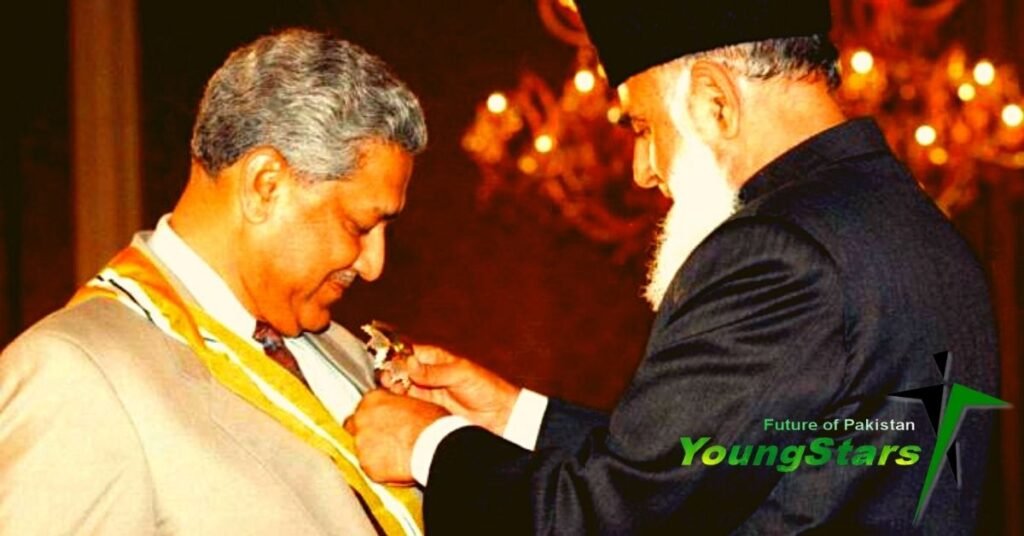
But it dissolved a year later when none of its 111 candidates won a seat in the national election. Khan sparked a new controversy the same year when he told the Urdu daily Jang that he had transferred nuclear technology to the two countries on the instructions of the assassinated Prime Minister Benazir Bhutto.
He did not name the countries, nor did he say that the orders were issued by the twice-elected Prime Minister Bhutto in 2007.” I was not free, but I was bound to obey the orders of the prime minister,” he said. Bhutto’s Pakistan People’s Party called the claim baseless and baseless.
No controversy has affected Khan’s popularity even years later. He regularly wrote an op-ed for the popular newspaper War Group, often preaching the value of scientific education.
Illness & Death
Khan, 85, died 10-October-2021 Sunday morning after his health deteriorated. His condition worsened on Saturday night. They rushed Khan to the Khan Research Laboratories Hospital, admitted thereafter testing positively for COVID-19. Sources said that the nuclear scientist had difficulty in breathing after which he was brought to the hospital. However, his health worsened when he started bleeding from his lungs.
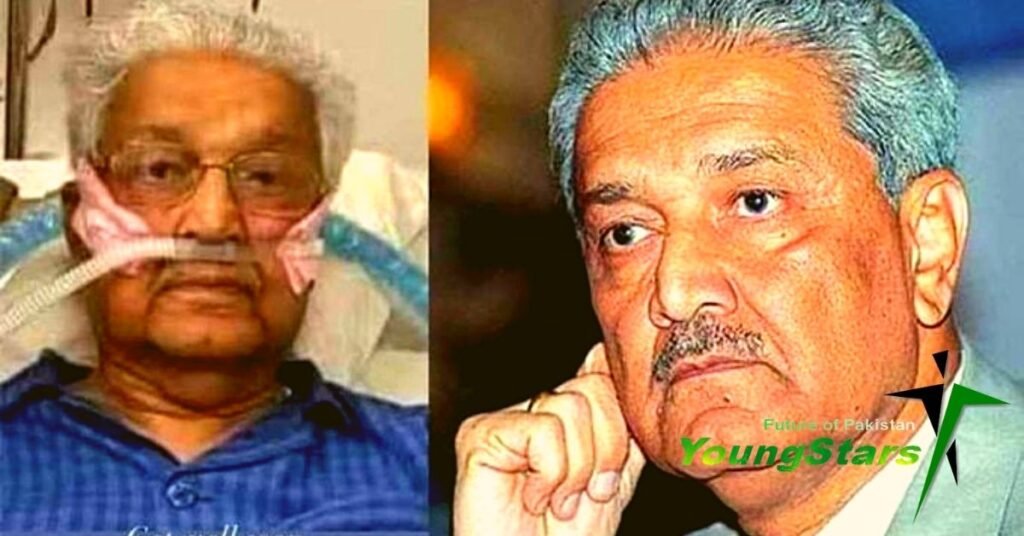
Many people attended the funeral prayer, including cabinet members, members of parliament, and military officers. Interior Minister Sheikh Rashid Ahmad had earlier said that Dr. Khan’s official funeral was conducted as per the instructions issued by Prime Minister Imran Khan.
Talking to the media in Islamabad, he said that the Prime Minister had directed the cabinet ministers to attend the funeral. The Home Minister said that the Chairman Joint Chiefs of Staff Committee and Services Chiefs would also be present.
“Two graves are ready,” Sheikh Rashid said. One in Faisal Mosque and the other in H-8 Cemetery. He later said that his family decided that they would bury him in the H-8 cemetery as he wished.
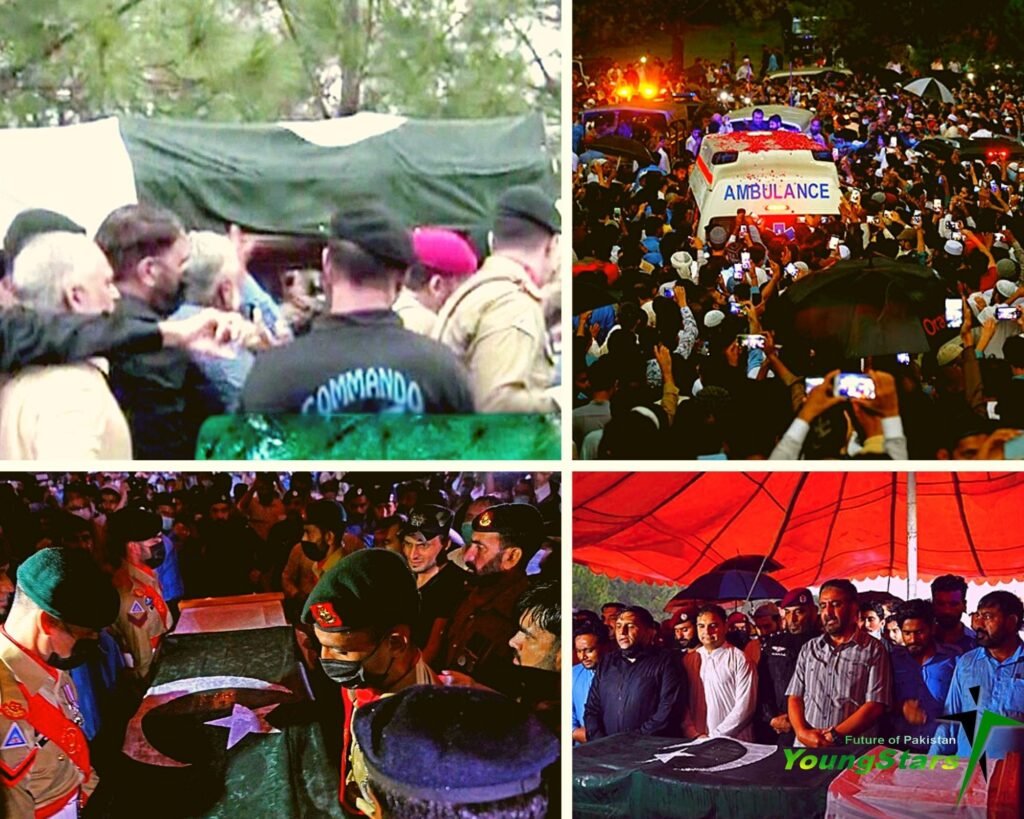
“The entire nation is sad,” the minister added, adding that they would fly the flag at half-mast. He also directed law enforcement agencies and the Islamabad commissioner to make security arrangements. They cremated him at Faisal Mosque before being buried in H8 Cemetery.
Reaction to the demise
According to a statement issued by Inter-Services Public Relations (ISPR), Chairman Joint Chiefs of Staff Committee General Nadeem Raza and all service chiefs expressed grief over the demise of Dr. Khan. The ISPR statement quoted Chief of Army Staff General Qamar Javed Bajwa as saying that he had rendered invaluable services in strengthening Pakistan’s defense capabilities.
Leader of the Opposition in the National Assembly, Shahbaz Sharif said that the nation has lost a true benefactor who served the motherland wholeheartedly. He said that the demise of Dr. Khan was a significant loss to the country. Their role is central to making Pakistan a nuclear power.
Defense Minister Pervez Khattak said he was “deeply saddened” by his death and called it a “huge loss”. He said that Pakistan will always respect his services to the nation! The nation is indebted to him for his contribution to enhancing our defense capabilities.
Pakistani President Arif Alvi tweeted on Sunday that Khan “helped us build a nuclear weapon to save the nation, and a grateful nation will never forget his services.”
Immense loss for Pakistan
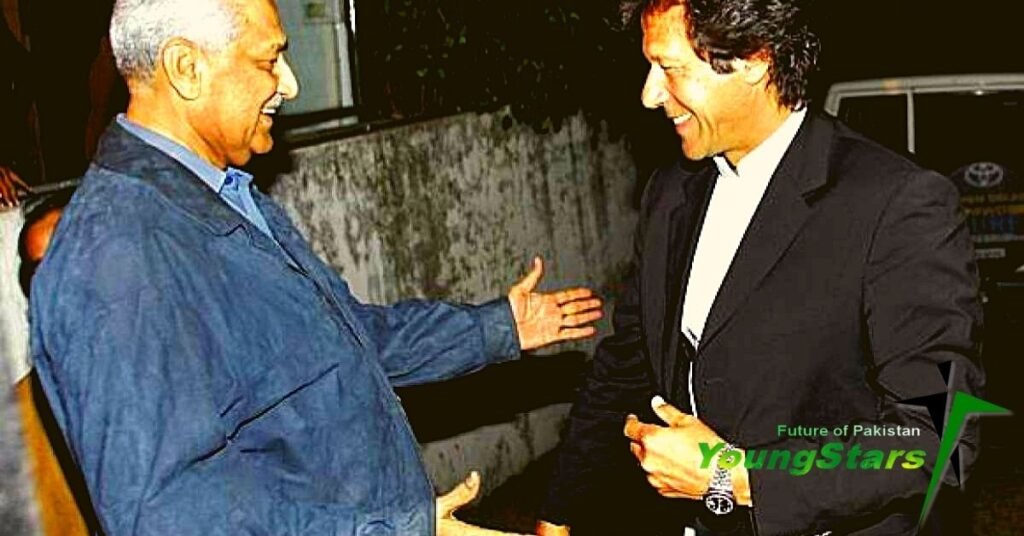
Khan is also the only Pakistani citizen to have been awarded the distinction twice. Prime Minister Imran Khan said that the nation loves Dr. Khan because he played an important role in making Pakistan a nuclear weapon. “It has given us protection against an aggressive, huge nuclear neighbor. He was a national icon for the people of Pakistan,” he said. The Prime Minister said that the scientist would be buried at Faisal Mosque in Islamabad as per his wishes. The country’s interior minister said armed forces chiefs and political leaders would attend his funeral.
He was a simple man. He enjoyed the company of old friends who were often invited for a delicious meal of pies, lentils, and okra. He loved people and respected them for it. Not surprisingly, he voluntarily chose to be buried in a public H-8 cemetery because he was indeed a man of the people. He died at 85. Flag of Pakistan presented to the eldest daughter of Dr. AQ Khan.
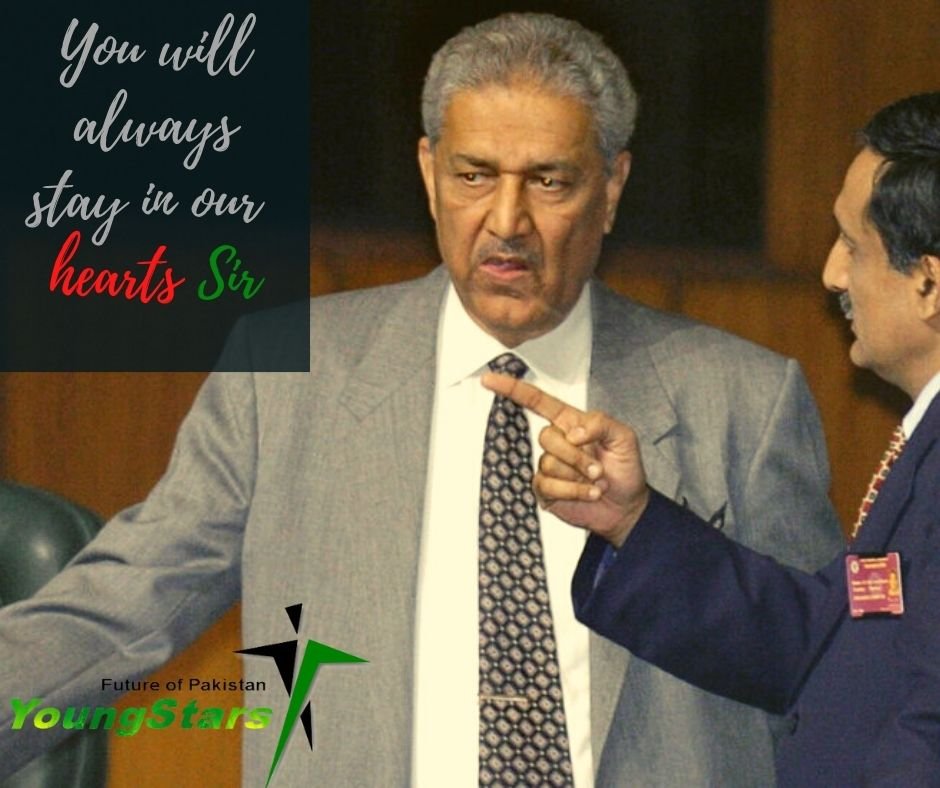
Khan wish was that after his death Pakistanis must pray for his funeral in every city, village, and street. Khan was a real gem. He made Pakistan proud at the international level. Dr. Abdul Qadeer Khan made us Nuclear Power. Thanks for your services, Sir. May ALLAH give him the highest place in Jannah.


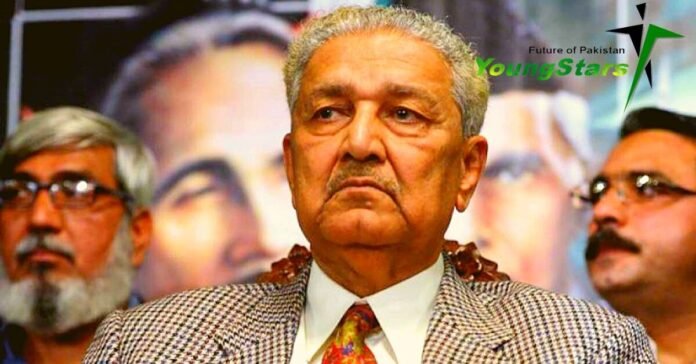


roll models, who have sacrificed their luxury for their country
… [Trackback]
[…] Read More: youngstars.pk/2021/10/2024/the-father-of-the-islamic-state-nuclear-bomb-dr-abdul-qadeer-khan/ […]
… [Trackback]
[…] Find More on to that Topic: youngstars.pk/2021/10/2024/the-father-of-the-islamic-state-nuclear-bomb-dr-abdul-qadeer-khan/ […]
… [Trackback]
[…] Info to that Topic: youngstars.pk/2021/10/2024/the-father-of-the-islamic-state-nuclear-bomb-dr-abdul-qadeer-khan/ […]
… [Trackback]
[…] Find More here on that Topic: youngstars.pk/2021/10/2024/the-father-of-the-islamic-state-nuclear-bomb-dr-abdul-qadeer-khan/ […]
… [Trackback]
[…] Read More Info here on that Topic: youngstars.pk/2021/10/2024/the-father-of-the-islamic-state-nuclear-bomb-dr-abdul-qadeer-khan/ […]
… [Trackback]
[…] There you can find 32250 more Information on that Topic: youngstars.pk/2021/10/2024/the-father-of-the-islamic-state-nuclear-bomb-dr-abdul-qadeer-khan/ […]
… [Trackback]
[…] Here you will find 49807 additional Info on that Topic: youngstars.pk/2021/10/2024/the-father-of-the-islamic-state-nuclear-bomb-dr-abdul-qadeer-khan/ […]
… [Trackback]
[…] Find More to that Topic: youngstars.pk/2021/10/2024/the-father-of-the-islamic-state-nuclear-bomb-dr-abdul-qadeer-khan/ […]
… [Trackback]
[…] Info to that Topic: youngstars.pk/2021/10/2024/the-father-of-the-islamic-state-nuclear-bomb-dr-abdul-qadeer-khan/ […]
… [Trackback]
[…] Find More Information here to that Topic: youngstars.pk/2021/10/2024/the-father-of-the-islamic-state-nuclear-bomb-dr-abdul-qadeer-khan/ […]
… [Trackback]
[…] Find More to that Topic: youngstars.pk/2021/10/2024/the-father-of-the-islamic-state-nuclear-bomb-dr-abdul-qadeer-khan/ […]
… [Trackback]
[…] There you will find 638 more Information on that Topic: youngstars.pk/2021/10/2024/the-father-of-the-islamic-state-nuclear-bomb-dr-abdul-qadeer-khan/ […]
… [Trackback]
[…] Find More on to that Topic: youngstars.pk/2021/10/2024/the-father-of-the-islamic-state-nuclear-bomb-dr-abdul-qadeer-khan/ […]
… [Trackback]
[…] Information to that Topic: youngstars.pk/2021/10/2024/the-father-of-the-islamic-state-nuclear-bomb-dr-abdul-qadeer-khan/ […]
… [Trackback]
[…] Read More on on that Topic: youngstars.pk/2021/10/2024/the-father-of-the-islamic-state-nuclear-bomb-dr-abdul-qadeer-khan/ […]
… [Trackback]
[…] Read More here to that Topic: youngstars.pk/2021/10/2024/the-father-of-the-islamic-state-nuclear-bomb-dr-abdul-qadeer-khan/ […]